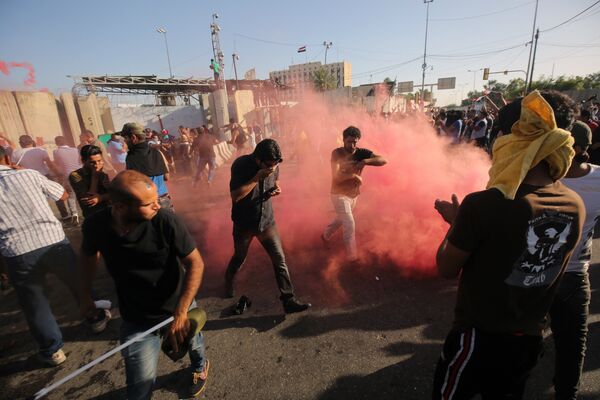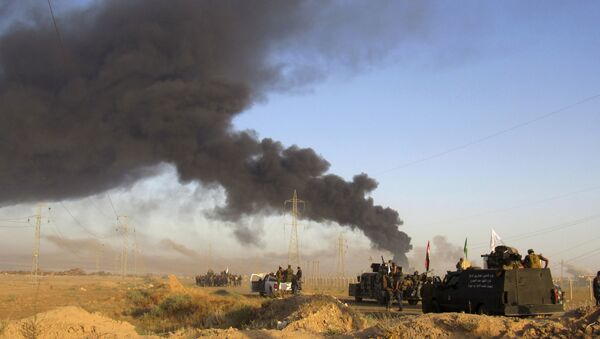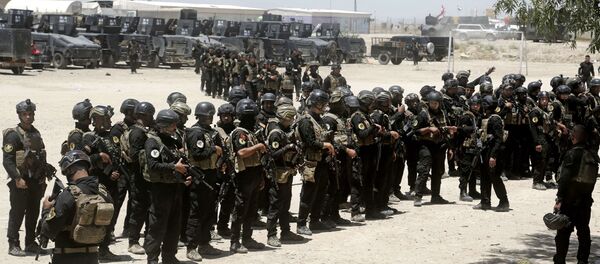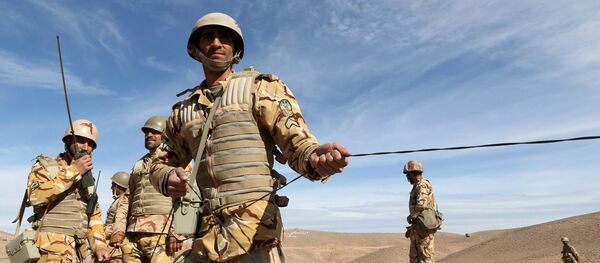Daesh has been steadily retreating both in Iraq and Syria, thanks in no small part to Russia's counterterrorism efforts. Baghdad-led forces and Peshmerga pushed Daesh out of the cities of Sinjar, Ramadi and al-Hit, while the Syrian Arab Army and Kurdish militias drove the militants out of Palmyra and al-Shaddadi.
Iraqi offensive against #ISIS in #Fallujah 23-30 May pic.twitter.com/6osEqjq1Ug
— SicuroIMS Iraq (@SIMS_Iraq) 30 мая 2016 г.
The victory in Fallujah will reinforce this trend at a time when Daesh's revenues and ranks are shrinking, but it will not come easily.
"Defeat in Fallujah should be inevitable, and if the cordon built up over the past few weeks and months has been even partially effective it should have made [Daesh's] ability to move fighters in or out difficult but not impossible," Associate Professor Rodger Shanahan of the Lowy Institute observed.
The operation meant to liberate the city was announced at a time when Baghdad has experienced the worst wave of violence in a year. More than 150 people were killed in the capital in a series of terrorist attacks earlier this month. Daesh targeted both Shia districts of Shaab and Sadr City, as well as a Sunni neighborhood of Tarmiya.

The assaults "likely accelerated the antigovernment protests over corruption and mismanagement that have already been at a boiling point since last summer," making steps aimed at "preventing further mass casualty attacks" in the capital a priority for the government "whose popularity is at a nadir among the Iraqi populace," Daniel R. DePetris of the Raddington Group wrote for the National Interest.
Surprisingly, regardless of how the offensive on Fallujah goes, it could both speed up and delay the operation to free Mosul, Iraq's second largest city and the key Daesh stronghold in the country.
"If the offensive to clear and hold Fallujah takes longer than anticipated, Baghdad may need to redeploy troops designated for Mosul towards Fallujah to ensure that the city is adequately protected from [Daesh] counterattacks," DePetris explained.
Yet, even if Iraqi army succeeds and even if Fallujah receives enough protection, Daesh is likely to employ its once successful strategy of wreaking havoc in the country through indiscriminate bombing campaigns.
Iraqi Terror-Counter Forces storm through Al Shuhadaa inside the urban borders of Fallujah. #Iraqi_destroying_isis pic.twitter.com/Tew7s2jNsg
— Nassire Ghadire (@NassireGhadire) 30 мая 2016 г.
The terrorist group "may well see strategic utility in suffering a defeat while imposing an enormous cost in civilian lives and damaged infrastructure. This could breed ongoing ill-well among the Sunni Iraqi population, laying the groundwork for a sympathetic Sunni environment into which some of its Iraqi members could continue to operate after IS loses its territory," Shanahan explained.
This is precisely the strategy that helped Daesh take large territories in Iraq under control in the first place.




